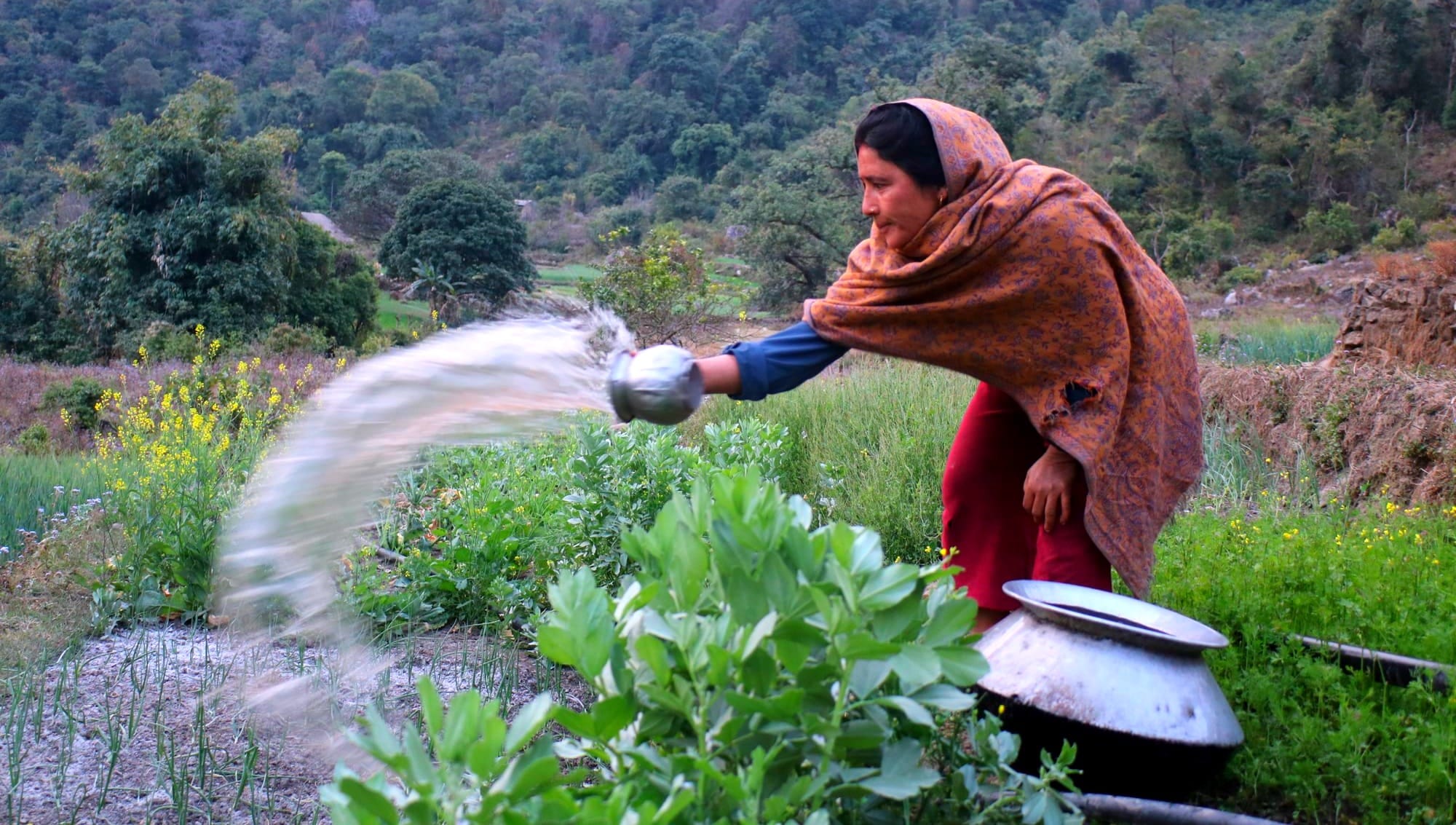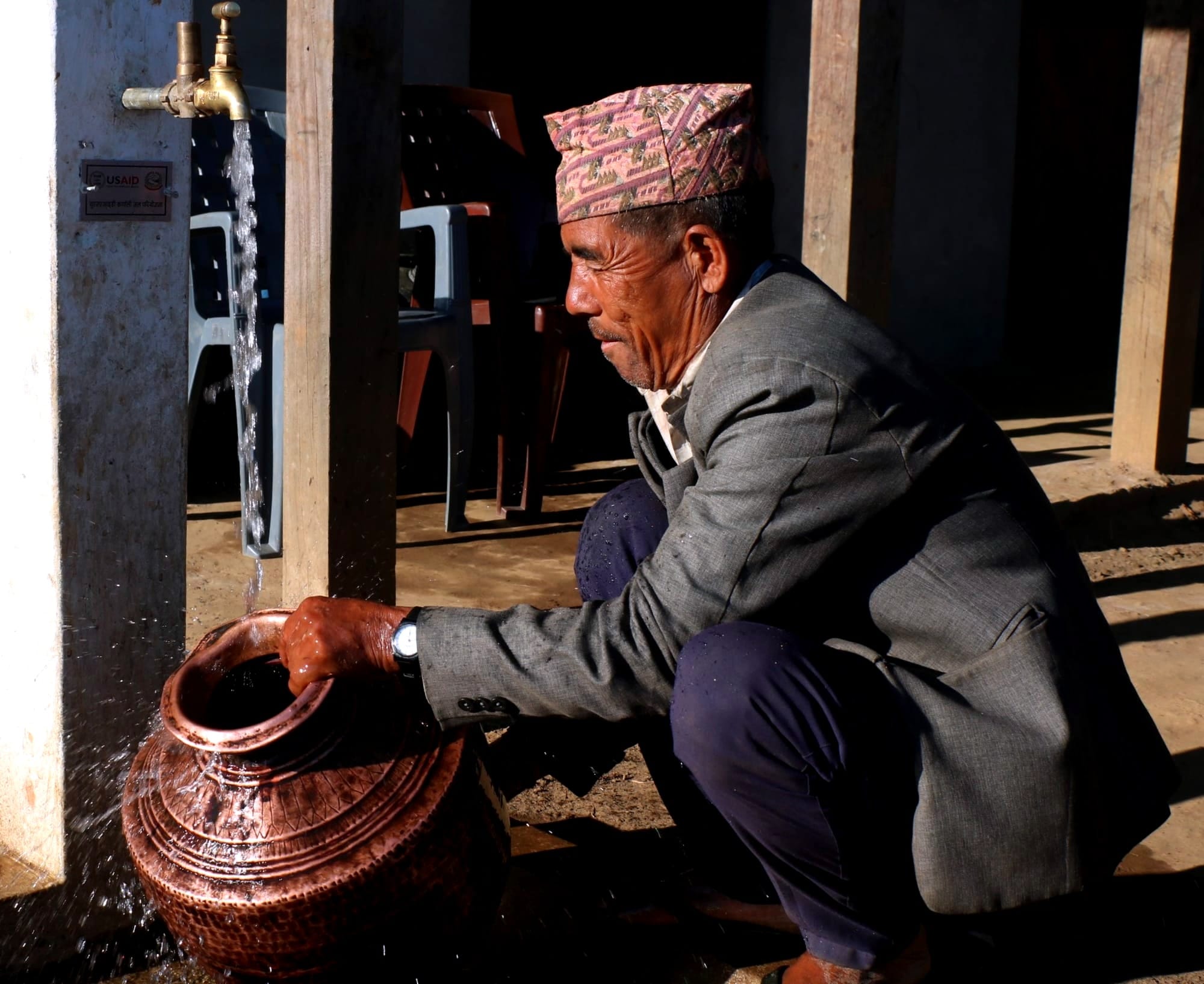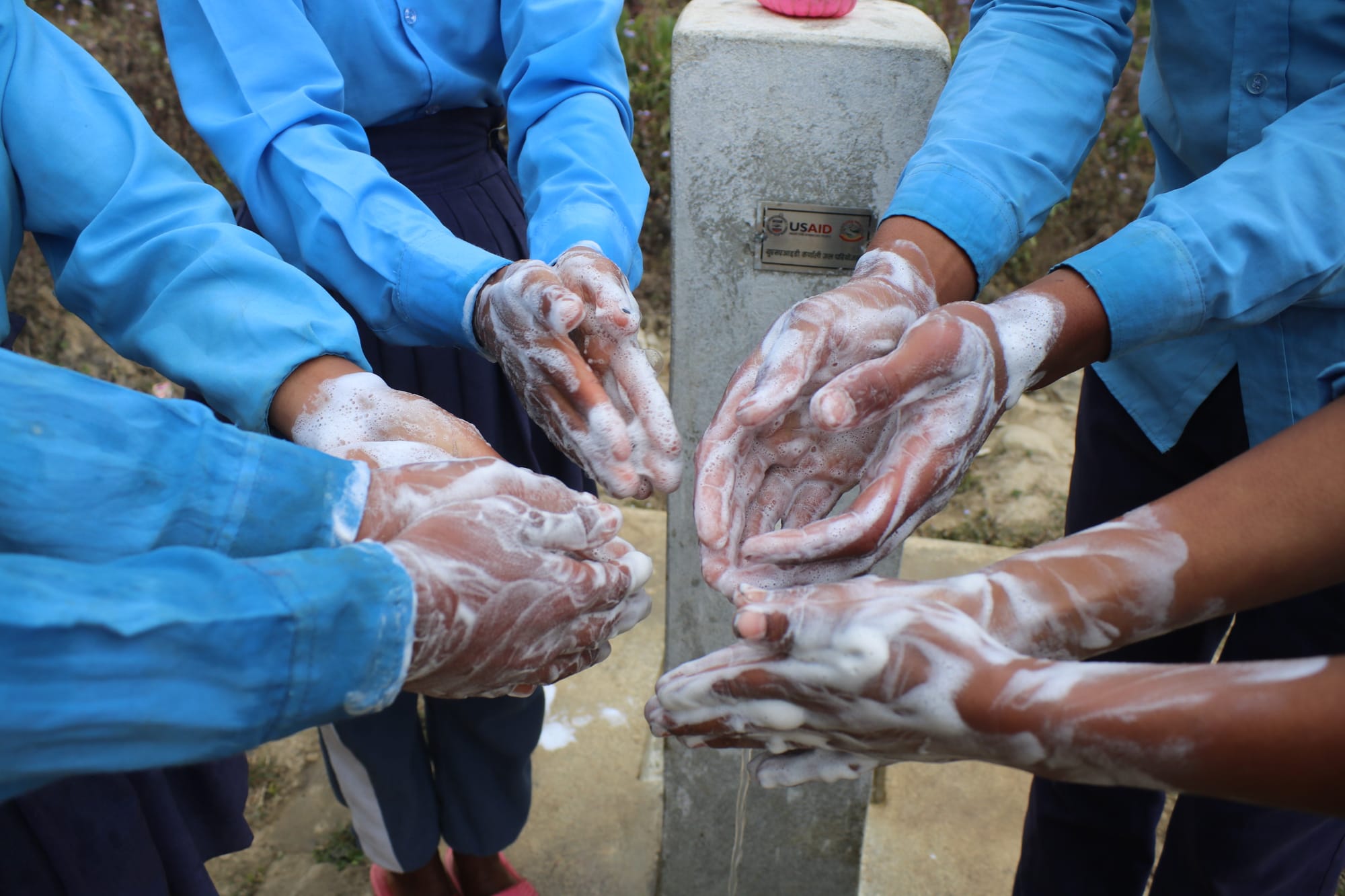Every year, on March 22, the world observes World Water Day, dedicated to raising public awareness about the crucial importance of safe drinking water and the collective responsibility of communities and societies in ensuring universal access to it. This year's theme is “Leveraging Water for Peace,” emphasizing that when we collaborate on water issues, we create a positive ripple effect—fostering harmony, generating prosperity, and building resilience to shared challenges.
In Nepal, 20 percent of the population lives below the poverty line, according to the National Statistics Office. This segment of society faces various socioeconomic challenges, including those related to water, sanitation, and hygiene (WASH). According to Nepal’s Ministry of Water Supply, 15 percent of the population lacks access to basic sanitation facilities, with rural areas in particular lacking adequate WASH facilities.
In 2022, Nepal demonstrated its commitment to shrinking this number by enacting the Water Supply and Sanitation Act, which aims to ensure access to clean and high-quality water supply and sanitation services while respecting, protecting, and fulfilling the fundamental rights of all citizens to receive such services. The new legal framework establishes a robust foundation for inclusive WASH initiatives across the country.

Empowering the Most Vulnerable
In Nepalese society, particularly in rural areas, women are primarily responsible for collecting water, in addition to managing water for kitchen gardens. Accordingly, the scarcity and mismanagement of water resources, the prevalence of inadequate sanitation, and other WASH challenges affect men and women differently. Similarly, people from other marginalized populations face distinct challenges when it comes to WASH services. The U.S. Agency for International Development (USAID)-funded Karnali Water Activity recognizes these distinctions and systematically works to engage historically excluded and marginalized populations, considering factors such as gender, sexual orientation, caste, ethnicity, disability, geographic location, occupation, and indigeneity. In Nepal, such marginalized groups include sexual and gender minorities, women, the poor, Dalits, Aadibasi/Janajati, Madhesi, Muslims, people with disabilities, and individuals in remote areas.
For the DAI-led Karnali team, understanding and addressing the specific needs and barriers to access for such excluded people is the foundation of the project. From planning to implementation, Karnali tailors its programs to the unique circumstances of these populations, acknowledging their experiences and challenges while at the same time tapping the wealth of skills, knowledge, and resilience they can bring to a given solution.
The activity initially conducted extensive formative research, exploring various facets of marginalization, and analyzing social dynamics, barriers, and challenges obstructing water access and community participation. It identified perceptions, biases, and attitudes driving exclusionary water practices such as caste-based discrimination and Chhaupadi, the menstrual taboo that limits women and girls from participating in normal societal activities. This research laid the groundwork for a social and behavior change strategy, incorporating a water champion community approach. The strategy specifically targets household-level water savings, productive water uses, and ensures menstrual hygiene. Additionally, the approach provides training on reusable sanitary pads. This comprehensive strategy addresses broader water access and management issues, fostering inclusion and positive behavioral changes through different awareness activities and radio jingles.

Now in its second year, the Karnali team has constructed 64 community-owned, sustainable water supply and sanitation schemes, providing improved drinking water facilities for 12,852 individuals at or near their doorsteps. Importantly, our team collaborated with six local governments, leveraging funding of more than $400,000. Similarly, the community contributed 20 percent in-kind—equivalent to more than $200,000—toward the construction of the facilities. The project also established 179 water user and sanitation committees for its second and third-year initiatives, with 66 percent of representatives from marginalized populations, and 51 percent of them are female.
“Inclusive development is not just a noble aspiration,” said Chief of Party Sunil Kumar Das. “It’s a pragmatic strategy that unlocks the full potential of communities, ensuring that the benefits of improved water facilities reach every corner of society.”
The Activity’s Gender Equality and Social Inclusion Action Plan outlines concrete strategies to ensure that citizens' voices are heard, and access issues addressed in a manner that considers historical disadvantages and discrimination, particularly those that hinder marginalized communities from enjoying water security.
For instance, a recent water activity has created numerous opportunities for women's leadership and economic empowerment, notably evident in the water users committees, where women and marginalized community members not only participate but also hold leadership roles, with more than 60 percent holding crucial positions such as chairperson, secretary, and treasurer. Women have become integral to the sustainability of water structures, with a significant number willingly taking on the responsibility of being village maintenance workers. To ensure the longevity of the schemes, 82 village maintenance workers have been selected and trained, 34 of them female.
Advancing Multiple SDGs
In Nepal and other less-developed countries, tackling WASH as a crosscutting issue typically leads to advances across more than one Sustainable Development Goal (SDG).
For example, when we prioritize access to clean water and sanitation (SDG 6), we address poverty by enhancing overall health and productivity (SDG 1). Ensuring equal access to WASH facilities promotes gender equality (SDG 5) and committing to the sustainable use and management of water aligns with the broader goal of responsible consumption and production (SDG 12). Karnali’s completion of seven multiple use business plans for communities with abundant access to drinking water enables the reuse of water, thereby supporting kitchen gardening and the commercialization of local crops such as lemons, green vegetables, potatoes, and tomatoes—fostering economic growth (SDG 8) and addressing hunger (SDG 2).

The activity team supported 20 WASH bills at the municipal level, 15 of which were endorsed by the respective councils. Additionally, it assisted 29 municipalities to develop water use master plans, all approved by local governments. These legal provisions and frameworks ensure inclusion, community participation, and environmental preservation, building stronger and more just institutions (SDG 16).
The activity has assessed 11,841 spring sources and protected 30 water sources through drainage management, fencing, plantation, recharge pit, intake, and gabion wall constructions, actively safeguarding 26.45 hectares of biologically significant areas (SDG 15).
“By recognizing the interconnectedness of WASH with various SDGs, Nepal is embarking on a transformative journey,” said Das. “Each drop of clean water echoes beyond health, reaching into the realms of equality, sustainability, and prosperity.
“Beyond the realm of statistics and legal frameworks, the urgency of achieving SDG 6 by 2030 gains new importance, especially considering the 2024 World Water Day theme, 'Leveraging Water for Peace.' This theme reminds us that water isn't just a resource; it's a connection binding us all together.”





